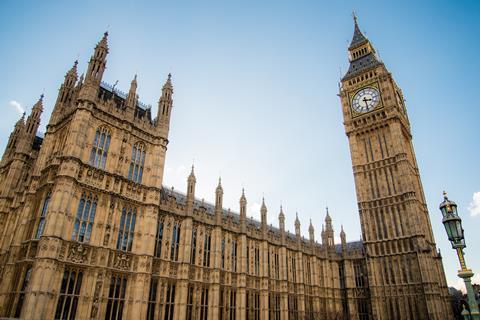English and Welsh farming unions congratulate new government and push for financial and labour security

The NFU says it is looking forward to working with the new UK government to help deliver its missions for Britain by boosting national food security, contributing to economic growth and driving environmental benefits.
Responding to the outcome of the 2024 Westminster General Election which saw the Labour party win a landslide victory, NFU President Tom Bradshaw described the change in government as “a reset moment for British agriculture”.
He pledged to work with new Prime Minister Sir Keir Starmer to drive the British farming sector forwards, and grow.
“Labour’s manifesto recognised that food security is national security, but it is business confidence which forms the foundation of this,” Bradshaw said in a statement.
“That’s why, for Britain’s farmers, the number one priority for the new Labour government must be to set an increased multi-year agriculture budget for the duration of the next Parliament. This is about investing in the future of British farming – in homegrown food, in the environment and in renewable energy.”
The NFU said, in the coming days and weeks, it will be building on its strong engagement with Labour ministers to date to discuss essential policy solutions on key issues for its members.
“There are a number of policies within Labour’s manifesto which we will want to see actioned, for example ensuring the new Environmental Land Management Schemes work for all farm businesses, setting core standards for food imports and legislation to boost public procurement,” said Bradshaw.
“At the same time, there are various issues that need greater recognition if the sector is to unlock its potential for growth, such as a fit-for-purpose Seasonal Workers Scheme, effective import controls, supply chain fairness, investment in infrastructure and flexibility in planning.”
The president of the Welsh farming union, Aled Jones, issued a similar message to Sir Keir Starmer on behalf of NFU Cymru.
“The next few years look set to be another defining period for Welsh agriculture, and as a union we very much look forward to working with our politicians as we promote and seek to advance the interests of Wales’ farmers,” he said.
“Our manifesto made a number of asks of the next UK Government, and chief amongst those is an inflation adjusted, ring-fenced and multi-annual agricultural support budget which will take us through to the next election, helping give the industry the certainty it needs to plan for the future and to deal with market-place volatility.”
He added: “Alongside this we have to see food production and food security given the priority they need and deserve to ensure we support primary production in Wales. That’s why in our manifesto we called on the next UK Government to establish minimum standards and to promote fair and functioning supply chains, as well as increasing the amount of Welsh food which goes into the public sector and to strengthen country of origin labelling across retail, hospitality and food service with clear and accurate labelling to allow informed consumer choice.
“We also want to see future trade deals with third countries be more balanced with the needs and sensitivities of the agricultural sector taken into account, with agriculture no longer being a bargaining chip when it comes to making trade deals and we have emphasised this point once again in our manifesto.”



